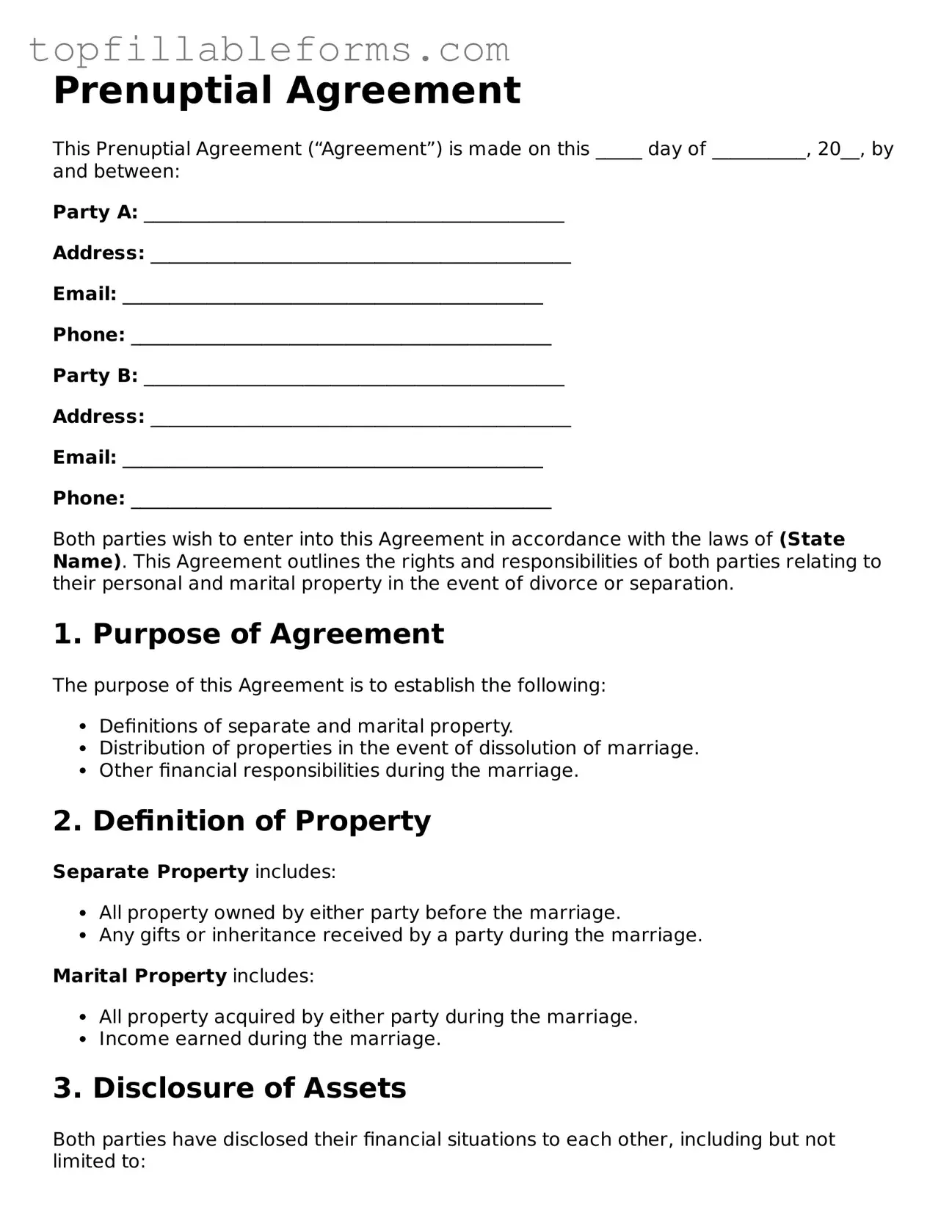Prenuptial Agreement
This Prenuptial Agreement (“Agreement”) is made on this _____ day of __________, 20__, by and between:
Party A: _____________________________________________
Address: _____________________________________________
Email: _____________________________________________
Phone: _____________________________________________
Party B: _____________________________________________
Address: _____________________________________________
Email: _____________________________________________
Phone: _____________________________________________
Both parties wish to enter into this Agreement in accordance with the laws of (State Name). This Agreement outlines the rights and responsibilities of both parties relating to their personal and marital property in the event of divorce or separation.
1. Purpose of Agreement
The purpose of this Agreement is to establish the following:
- Definitions of separate and marital property.
- Distribution of properties in the event of dissolution of marriage.
- Other financial responsibilities during the marriage.
2. Definition of Property
Separate Property includes:
- All property owned by either party before the marriage.
- Any gifts or inheritance received by a party during the marriage.
Marital Property includes:
- All property acquired by either party during the marriage.
- Income earned during the marriage.
3. Disclosure of Assets
Both parties have disclosed their financial situations to each other, including but not limited to:
- Real estate holdings.
- Bank accounts.
- Investment accounts.
- Debts and liabilities.
4. Division of Property
In the event of dissolution of marriage, assets will be divided as follows:
- Party A shall retain ownership of _______________________.
- Party B shall retain ownership of _______________________.
5. Waiver of Rights
Each party agrees to waive the right to:
- Claim against the other’s separate property.
- Spousal support or alimony beyond what is outlined in this Agreement.
6. Governing Law
This Agreement will be governed by and construed in accordance with the laws of (State Name).
7. Acknowledgment
The parties acknowledge that they have had the opportunity to consult independent legal counsel regarding this Agreement before signing.
IN WITNESS WHEREOF, the parties have executed this Prenuptial Agreement as of the date first above written.
Party A Signature: _________________________________ Date: _____________
Party B Signature: _________________________________ Date: _____________
Witness Signature: _________________________________ Date: _____________

